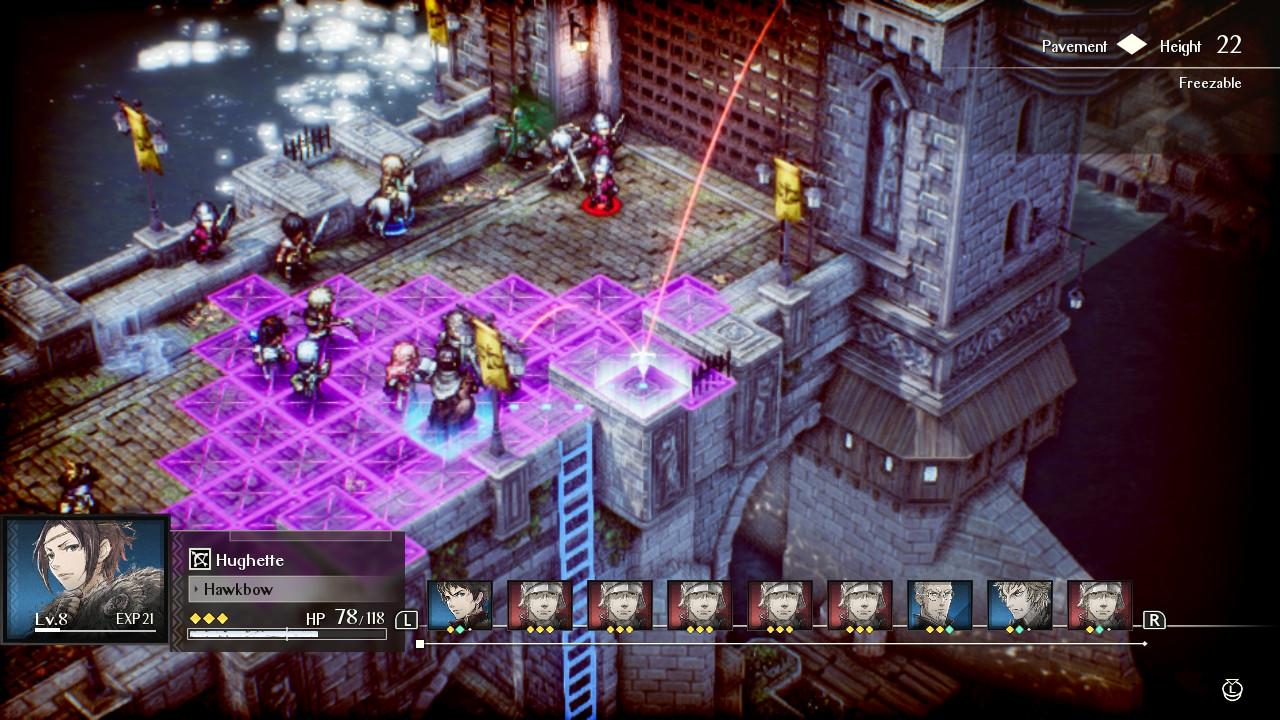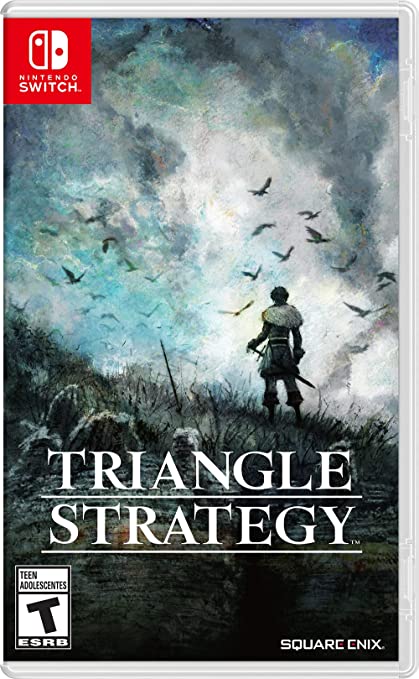iMore Verdict
Bottom line: Triangle Strategy is a solid tactics title that features strong characters and gameplay, though it may not be for you if you're not into dialogue-heavy games.
Pros
- +
Gorgeous art direction
- +
Solid plot and characters
- +
Solid tactics gameplay
- +
Unique decision-making system
Cons
- -
Long dialogue sections throw off pacing
- -
Escort mission objectives
- -
First playthrough lacks some important info
You can always trust iMore.
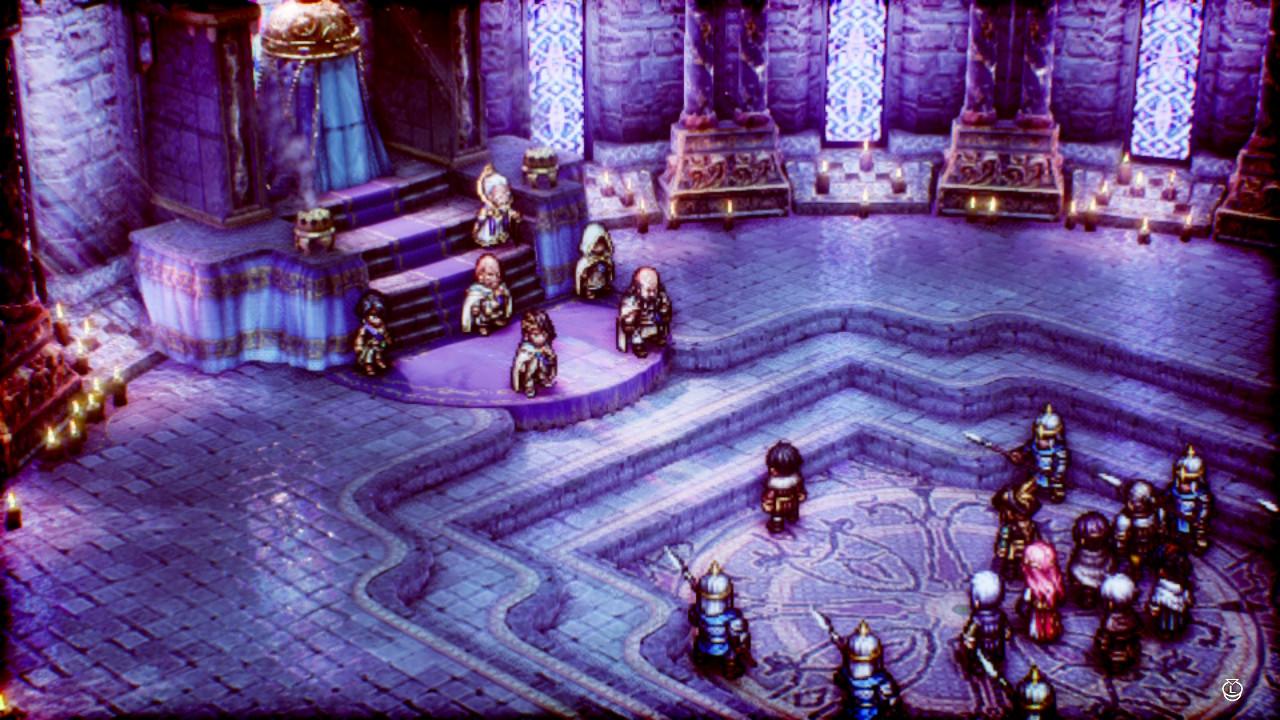
Since the launch of Octopath Traveler, much has been made of the unofficial "2D-HD" series, games that use a mixture of sprites and HD artwork to great effect. As the latest collaboration between Square Enix and Nintendo, Triangle Strategy carries on this aesthetic but this time, instead of a JRPG, it's a story-focused tactics game, with a heavy emphasis on the story.
Triangle Strategy's epic narrative focuses on Serenoa Wolffort, heir to House Wolffort, loyal vassals of Glenbrook. When tragedy strikes the delicate balance between three nations — Glenbrook, Hyzante, and Aesfront — Serenoa is forced to make hard decisions and seek the counsel of his companions. Central to the narrative is the game's unique decision-making mechanic, the Scales of Conviction, as while you can try to convince someone of a particular choice, ultimately, everyone gets a vote into what will happen when you're met with a crossroads.
Overall, Triangle Strategy is a great strategy game for veterans and newcomers alike, with a narrative that keeps the player invested in the warring houses and ensuing power struggles. With that said, the heavy focus on dialogue means you're often waiting a long time between battles, throwing the pacing off. There are also some odd choices in exactly how the Scales of Conviction work, especially on an initial playthrough.
Disclaimer: This review was made possible by a review code provided by Nintendo. The company did not see the contents of the review before publishing.
Triangle Strategy: What I liked
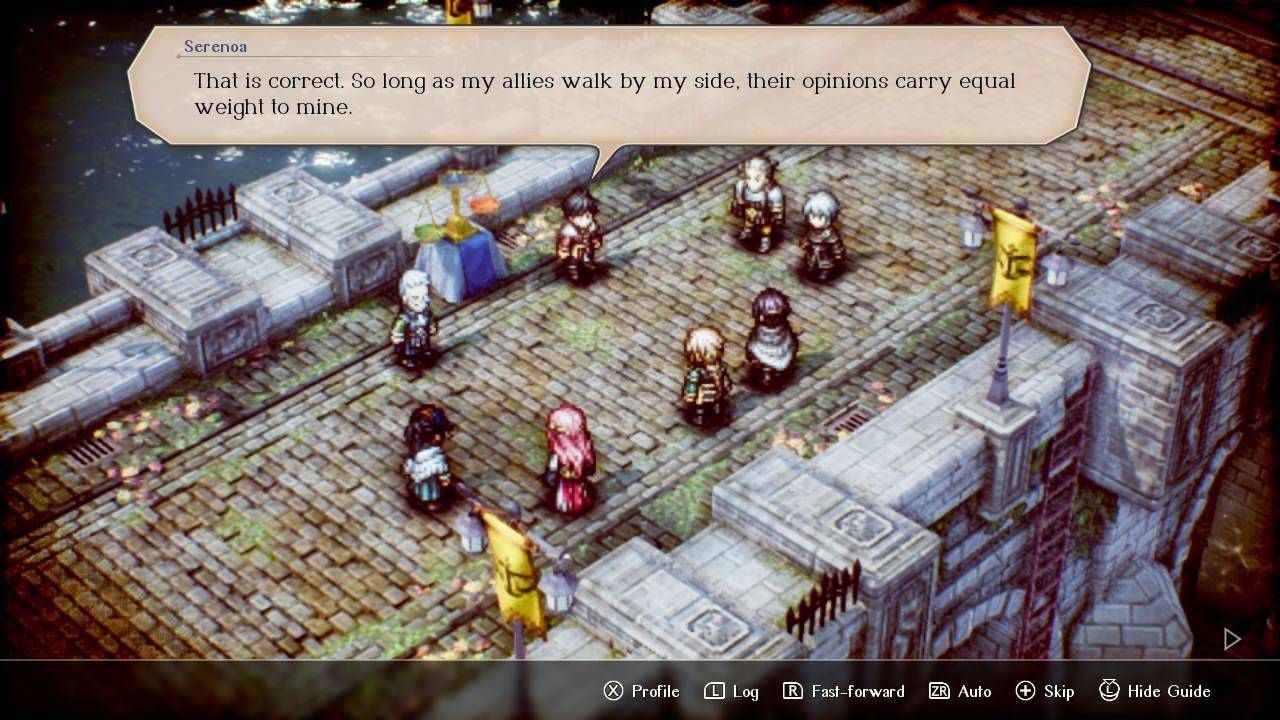
Inheriting Octopath Traveler's 2D-HD graphics style, Triangle Strategy was eye-catching from the start, and that holds up in the full game. Everything about the game looks great, with detailed maps and backgrounds appropriately juxtaposed with lively sprites. Even with the limited processing power of the Nintendo Switch, Triangle Strategy looks great.
| Category | Triangle Strategy |
|---|---|
| Title | Triangle Strategy |
| Developer | Artdink |
| Publisher | Nintendo/Square Enix |
| Genre | Strategy, RPG |
| Game Size | 6.2GB |
| Play Time | 30+ hours |
| Players | Single-player |
| Format | Download |
| Launch Price | $60 |
At multiple points I just found myself staring at the waterfalls and snow-capped peaks of various locales. The game is set across multiple regions and changes up the scenery at an appropriate rate. Triangle Strategy is the perfect example of a game not aiming for hyper-realism but instead taking a particular aesthetic and nailing the implementation.
If the striking art direction is what'll first catch your eye in Triangle Strategy, it's the story that keeps you invested. After learning some backstory on the continent of Norzelia and its aforementioned factions, players are told of the limited quantities of salt and iron that are available, resulting in the appropriately named Saltiron War that preceded the events of the game. Triangle Strategy wears its similarities to A Song of Ice and Fire on its sleeves, so if you're a fan of royal houses going to war and screwing each other over, you'll feel right at home here.
Center stage is protagonist Serenoa, but he's got some friends. Three in particular play key roles in the story: Benedict, his trusted advisor; Frederica, his Aesfrosti fiancé; and Roland, younger prince of Grenbrook and Serenoa's best friend. They and other members of Serenoa's inner circle are well fleshed out, with each given time and space to make their opinions clear. In a world of scheming and manipulation, it pays to think things through.
The striking art direction will catch your eye, while the story will keep you invested.
As the game goes on, this works well when it comes to the game's unique method of making decisions (more on that below) as it's never something so basic as "good path, bad path" but instead varying valid reads on complicated situations. When someone is believed to be dead, do you reveal information to the contrary to potentially gain an ally or hold your hand close for the time being?
This is accomplished through the Scales of Conviction. Instead of every decision being left solely to the player's whims, every main party member gets a vote. Before the vote, it's made clear where everyone stands (or if they don't lean any particular way) and you're allowed to ask around the area, gathering evidence or anecdotes to support your viewpoint. You can try to convince someone to go a particular way but ultimately, the keyword is try.
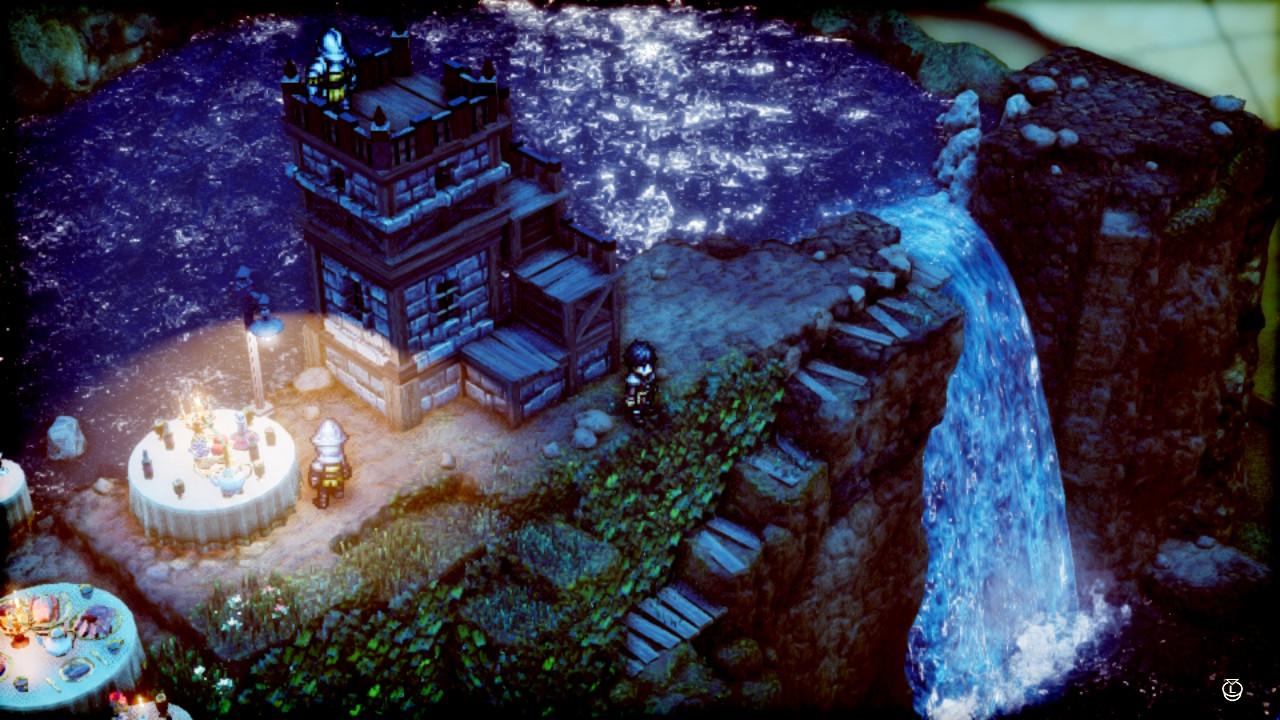

Source: iMore
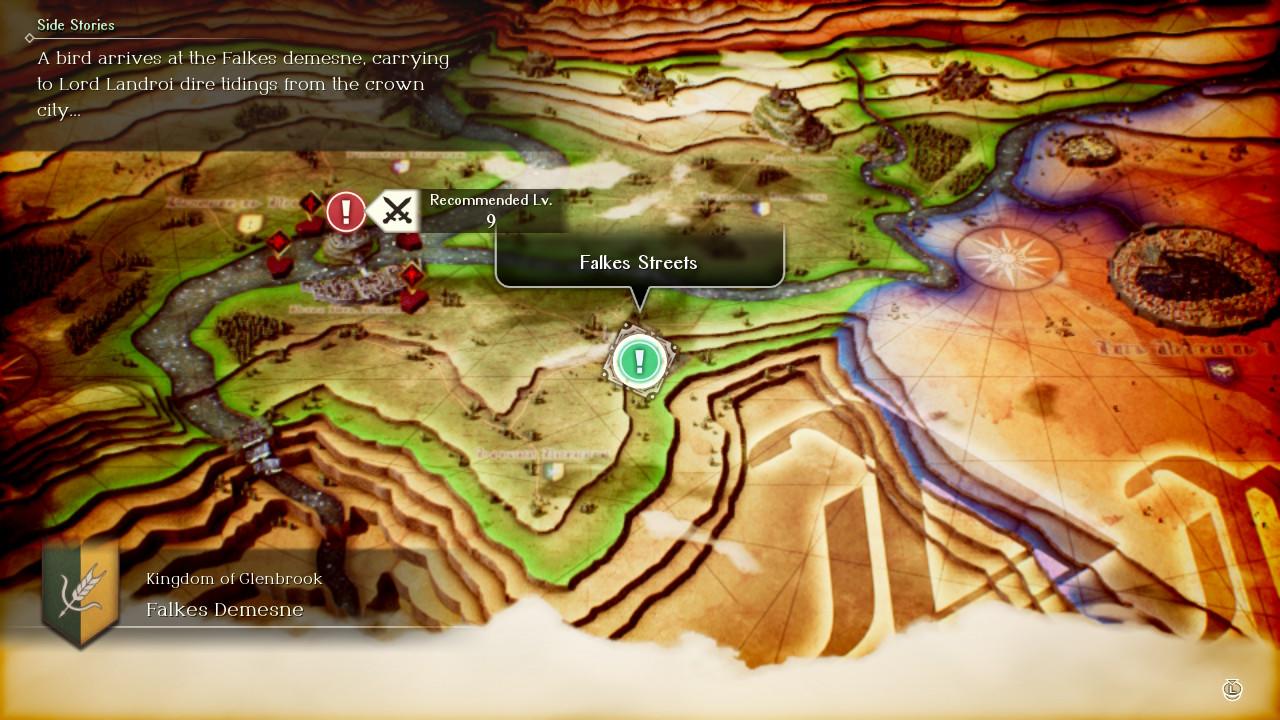
If there's a tie in the vote, you'll get to be the tiebreaker, but even if you make solid arguments, the decision often feels out of your hands, in a way that can make you feel both nervous and more invested. There's something to be said for characters having agency outside of a single voice line whenever a decision comes up, and it's something I'd like to see more games learn from.
Ultimately, no matter the paths you take, you'll end up fighting. The combat isn't anything that hasn't been seen before, but works well, as you choose your characters to deploy, level them up, get new equipment, and carefully plan actions out across the battlefield.
You can try to convince someone to go a particular way but ultimately, the keyword is try.
One nice newbie-friendly feature is in how Triangle Strategy handles earning experience. Because of the heavy story focus and lack of optional side dungeons or missions, you will retain any experience or level-ups earned even from a failed attempt at a story battle. As such, even if you do a poor job with leveling up your characters or the game's more intricate mechanics aren't clicking with you, you can always grind to higher levels through repeated attempts, making it feel impossible to get locked out.
There's also a nice emphasis on environmental manipulation, particularly using your party's mages. Gutter overflowing with water? You can easily shock any enemies that step into the water. Wooden palisade blocking your path? Just burn it down.
Finally, while the soundtrack is somewhat-limited (you'll be hearing the same handful of tracks a fair bit, especially in battle) it definitely feels appropriate, with somber tones and triumphant horns alike that wouldn't feel out of place in an older Final Fantasy game.
Triangle Strategy: What I didn't like
While I really liked the emphasis on story, it must be reiterated that Triangle Strategy is a dialogue-heavy game. At multiple points, the conversations can go on for several minutes at a time without even the option of moving your character around. Compounded with the lack of battles and side activities, the pacing can definitely feel sluggish, particularly in the early chapters of the game when the stakes aren't quite as high.
It's also worth mentioning some downsides to the unique decision-making system. Serenoa's convictions to the three virtues are measured in points, with these point totals determining how convincing your arguments are and even what party members join outside of the required inner circle. In your initial playthrough, you are not told at any point how many you earn for any action or how far away you are from being able to successfully argue a point.
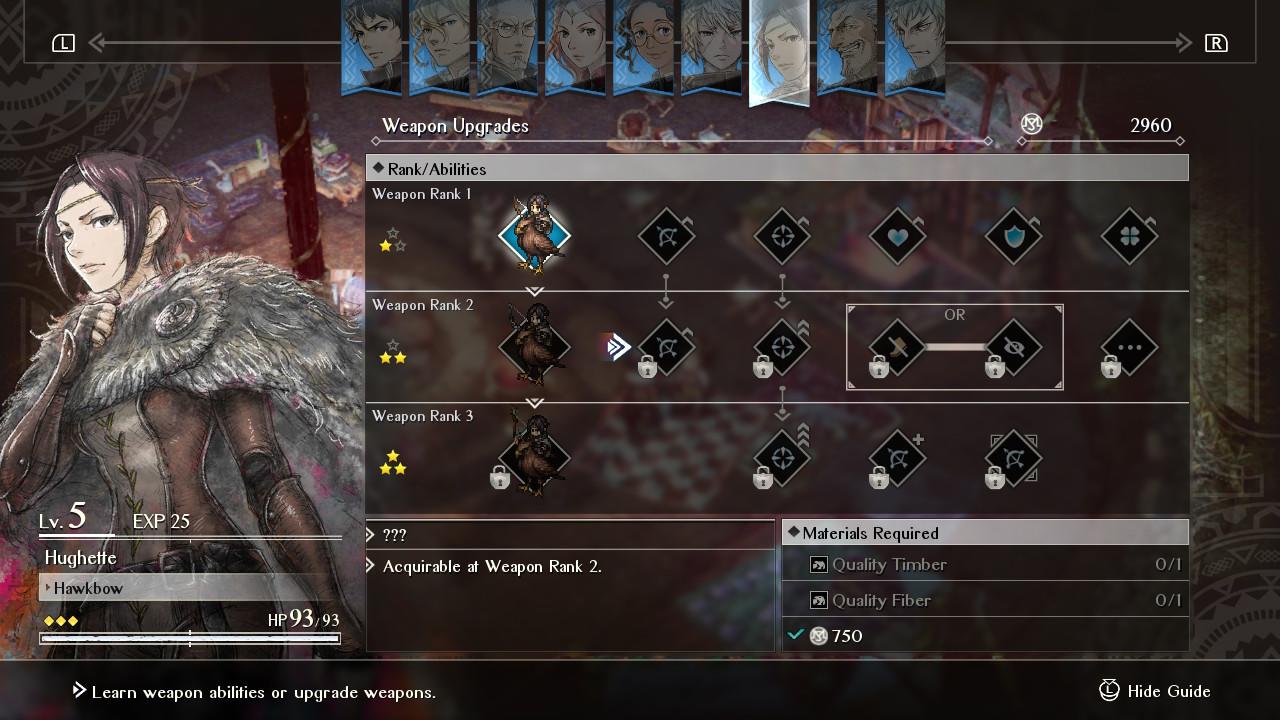
While I do appreciate that this means you aren't completely number crunching on your first playthrough, it does have the side effect of making accomplishing some things in later chapters extremely confusing and difficult, if not outright impossible. I spent nearly an hour trying to convince my companions of the way a decision needed to go, gathering evidence and important points. The fact that nothing I said would convince them due to arbitrary missing points feels a little self-defeating.
The same goes for optional companions in Triangle Strategy outside of your main party. Different totals of morality points and a handful of decisions determine who you'll get, but never in a way that feels within player control, or even field-of-view.
Triangle Strategy: Should you play it?
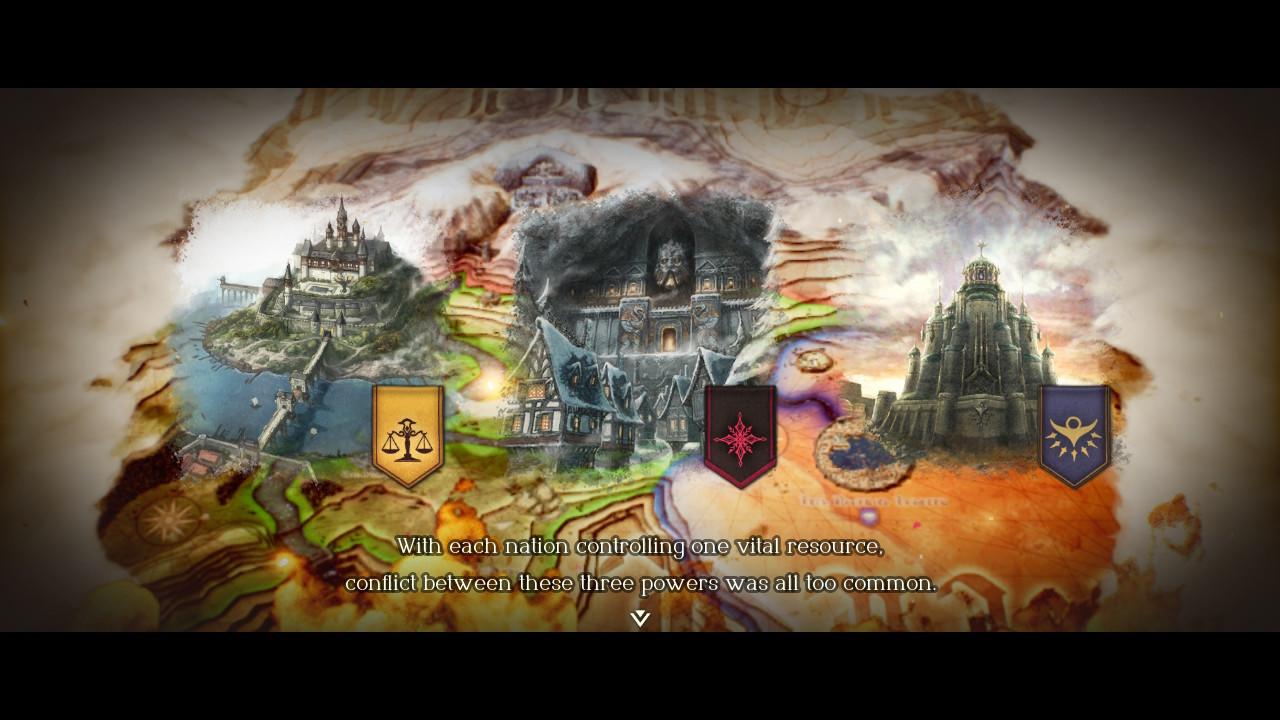
Ultimately, Triangle Strategy is a very good game. It's not even remotely subtle in what it pulls from for inspiration, but it does so in a convincing, grounded way. The characters, while definitely prone to droning on and on from time to time, all feel well-actualized and thought out. The imperfect Scales of Conviction system is a great idea for decision-making that I'd love to see future games iterate on.
Octopath Traveler laid the visual foundation for the "2D-HD series," and now Triangle Strategy feels like a huge leap forward on the storytelling aspect. If you're into strategy games, it's one of the best Nintendo Switch games available. If you're new to these kinds of games, it's still worth giving a shot, especially since there's a free demo, which grants access to the first couple of chapters of the game. You can even transfer your progress over once you finish it.

Samuel Tolbert is a freelance gaming writer who started working for iMore and its sister sites Windows Central and Android Central in July 2019. He handles news, previews, reviews, and exclusive original reporting, and has also been featured on TechRadar. With a background studying engineering before he shifted his focus to gaming journalism, he's skilled at identifying technical advantages and disadvantages provided by different hardware. If he’s not writing something, he’s off playing video games, spending time with his pets, exercising, or reading. He's also fond of trying to draw things with his iPad.
